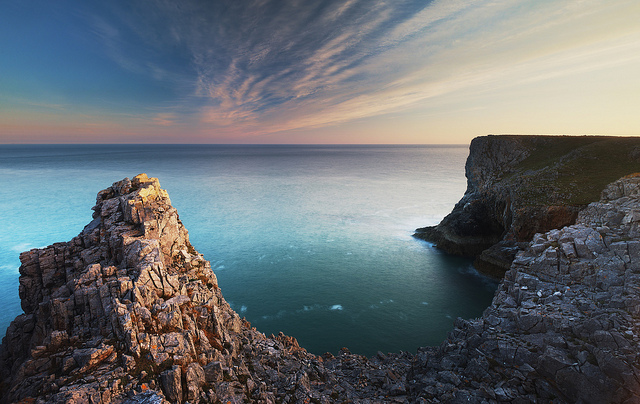I’ve learned to challenge my comfort zone a lot in life (the joys of being fiercely ambitious).
In fact, more often than not, I find myself sitting outside of the zone looking in. It’s inviting and familiar, and sometimes I wish I could be content in staying there.
Like a hot tub, comfort zones are warm and safe from the elements, but we can’t stay there forever—we’ll acclimatize, and we won’t want to leave. The longer we stay, the harder it is to brave the cold when we do eventually exit.
If we want to push our own limits and seek new horizons, then we have to step outside into the unknown (the challenge of having big scary dreams). They say that life happens just outside of our comfort zone, and I couldn’t agree more—it’s where the magic happens.
The funny thing is that I often feel most comfortable outside of my comfort zone. I also realize that I sometimes make others uncomfortable, when I pursue my dreams and move away to a far-flung corner of the world.
My two-year expat placement in Honduras—where I was fortunate enough to lead the first all-female team in mining in Latin America—was no exception. Despite Honduras being ranked as one of the most dangerous countries in the world, playing it safe was not an option.
The unknown can be a barren landscape and very isolating. Sometimes it’s easy to feel like we don’t belong there, like we’re foreigners in someone else’s land, waiting for permission to even be there. Many people forget though that it’s up to us to sign our own release form.
And what holds us back from stepping out of our comfort zone is knowing that when we remove the solid grounding from under us, we can lose our connection with our current reality. And as humans, we like to feel grounded and connected to our power source: our confidence, our security and our ability to define reality.
Outside of our comfort zone is when we’re most vulnerable, and that’s why we need to have our guard up. I have known what it’s like to adopt the “trust no-one” mentality, and I know what it’s like to live with a high probability of being in the “wrong place, wrong time” at any given time.
But my experience in Honduras (approximately 11,841 km outside of my comfort zone in New Zealand) has made me a stronger person—and it’s not from simply from being the only female leader in a machismo society and a male dominated industry. It’s made me stronger because I’ve grown into a new version of myself that I found only when faced with a new reality. I’ve had to peel back emotional and mental layers and expose myself to the raw elements of life without the protection of familiarity, safety and grounding.
More often than not, those of us who venture into the wilderness will come back as a stronger, more refined and more resilient version of ourselves. That’s why the wilderness is often seen as the ultimate test of survival. And survival means recognizing our environment, being grateful for what we have and understanding how we can use it for our benefit.
For me, it was finding the simplicity in life: safety, freedom, education and everyday things that we often can’t find the time to jot down in a gratitude journal. On the contrary, for many Hondurans, this meant learning to be grateful for each meal or simply for just getting through another night alive. These people aren’t caught up in chasing status and material possessions like we Westerners do, all too often letting those things define the outer walls of our comfort zones.
These guys would have given anything to live one day inside my comfort zone. So why did I feel the need to live out of mine? I felt almost guilty at times for not just going home and “being grateful.”
The main anchor that chains us to our comfort zone is fear. Subconsciously, we know that we will change when we step out, and for many of us, change can be a scary thing. Relationships, priorities and feelings will change, and sometimes we have to leave our friends and family behind. Sometimes we’ll outgrow our comfort zone, and if we return, we might not be the same person.
Sure, getting out of your comfort zone may be uncomfortable for awhile, but it’s nothing compared to the discomfort of sitting on an unfulfilled dream that’s nagging at you from the pit of your stomach.
Our intuition is the most powerful weapon we have (way more so than a machete or a machine-gun), so learn to trust it. Listen to yourself and be led to your dreams. Stop resisting. Get uncomfortable and start living.
Yes, our dreams come at a cost—an opportunity cost. Will you stay where you are, or will you respond to the call of your dreams?
.
Author: Catherine Peters
Image: Flickr/Durand
Editors: Yoli Ramazzina; Emily Bartran







Read 0 comments and reply